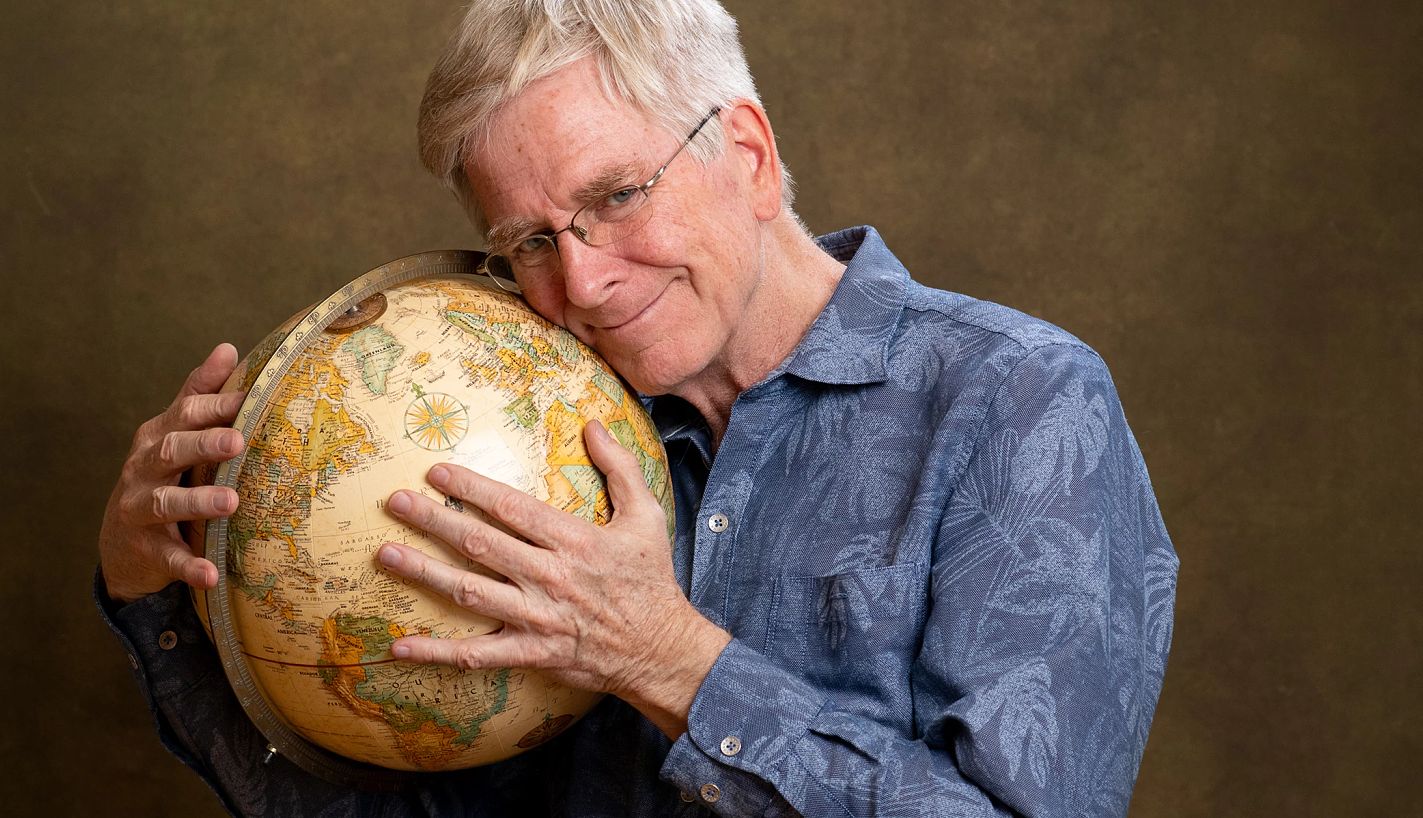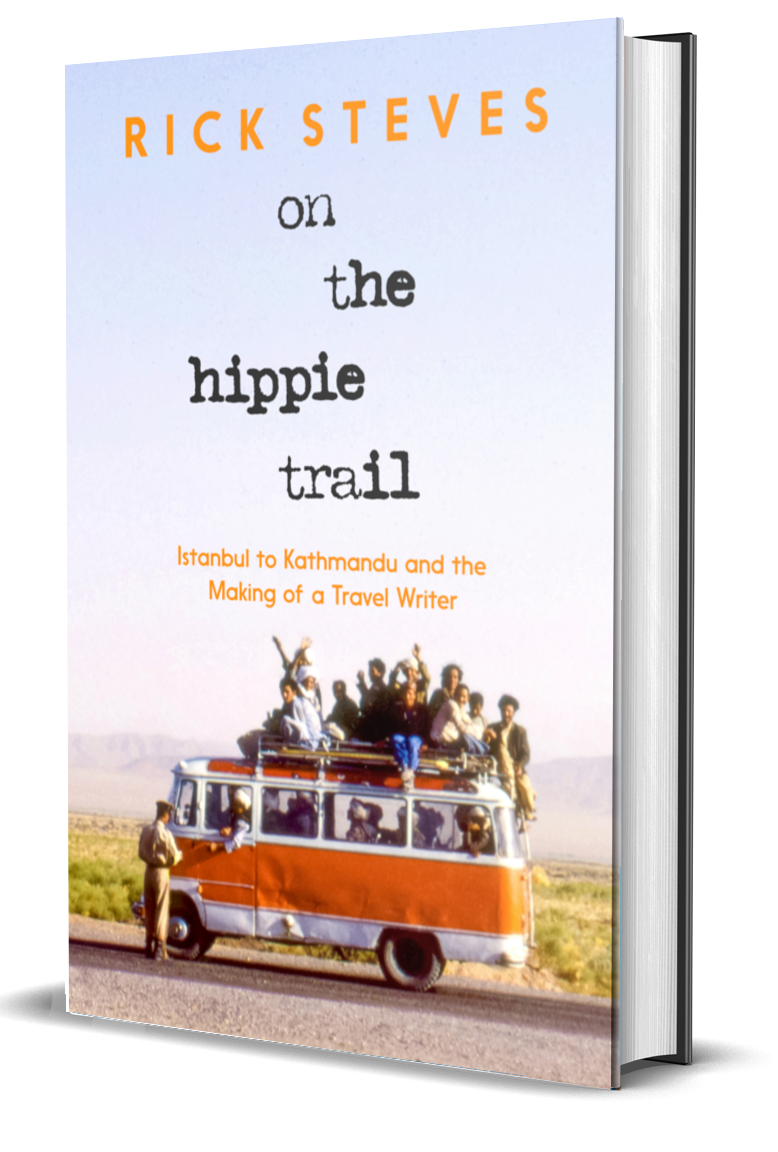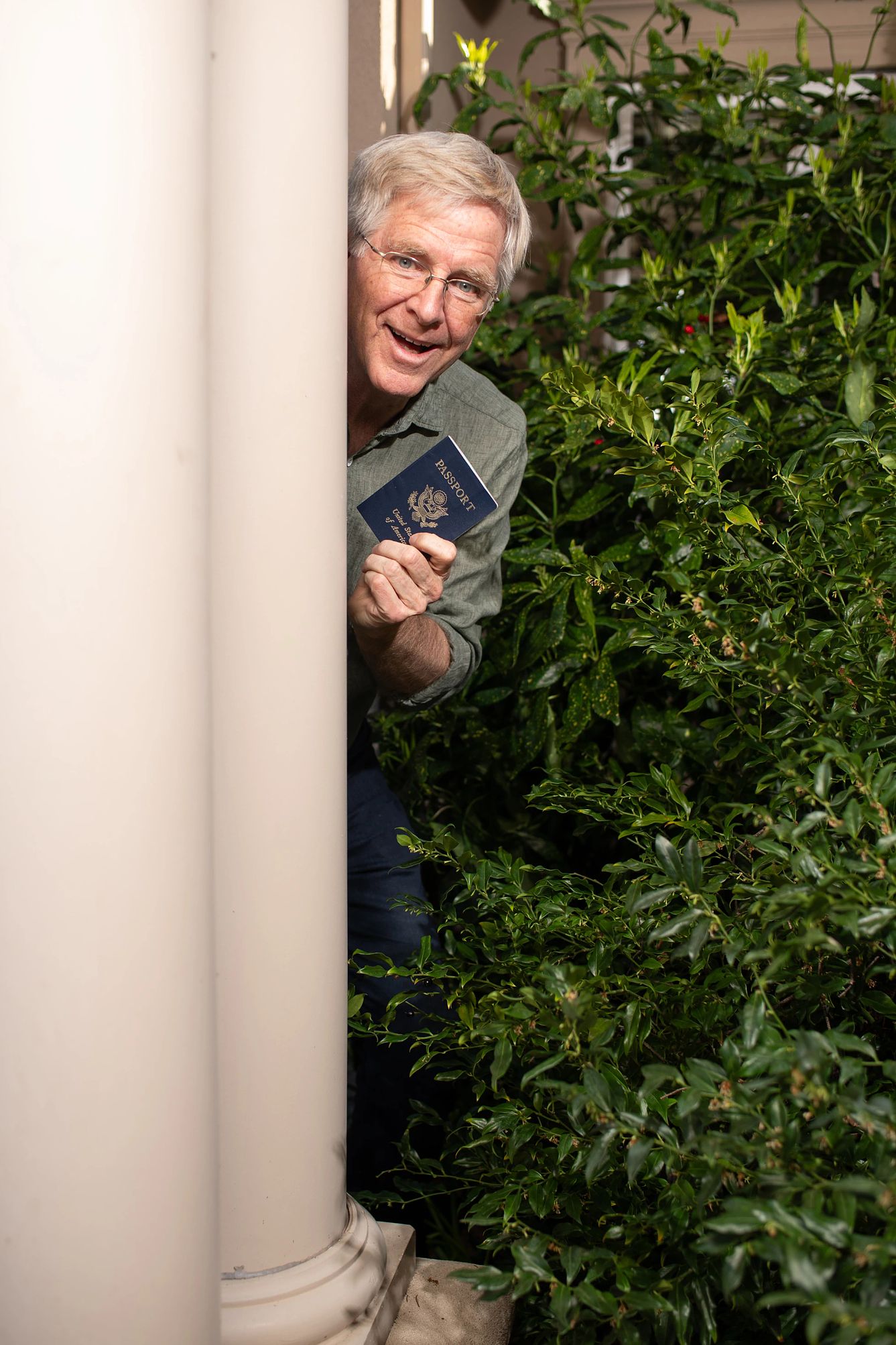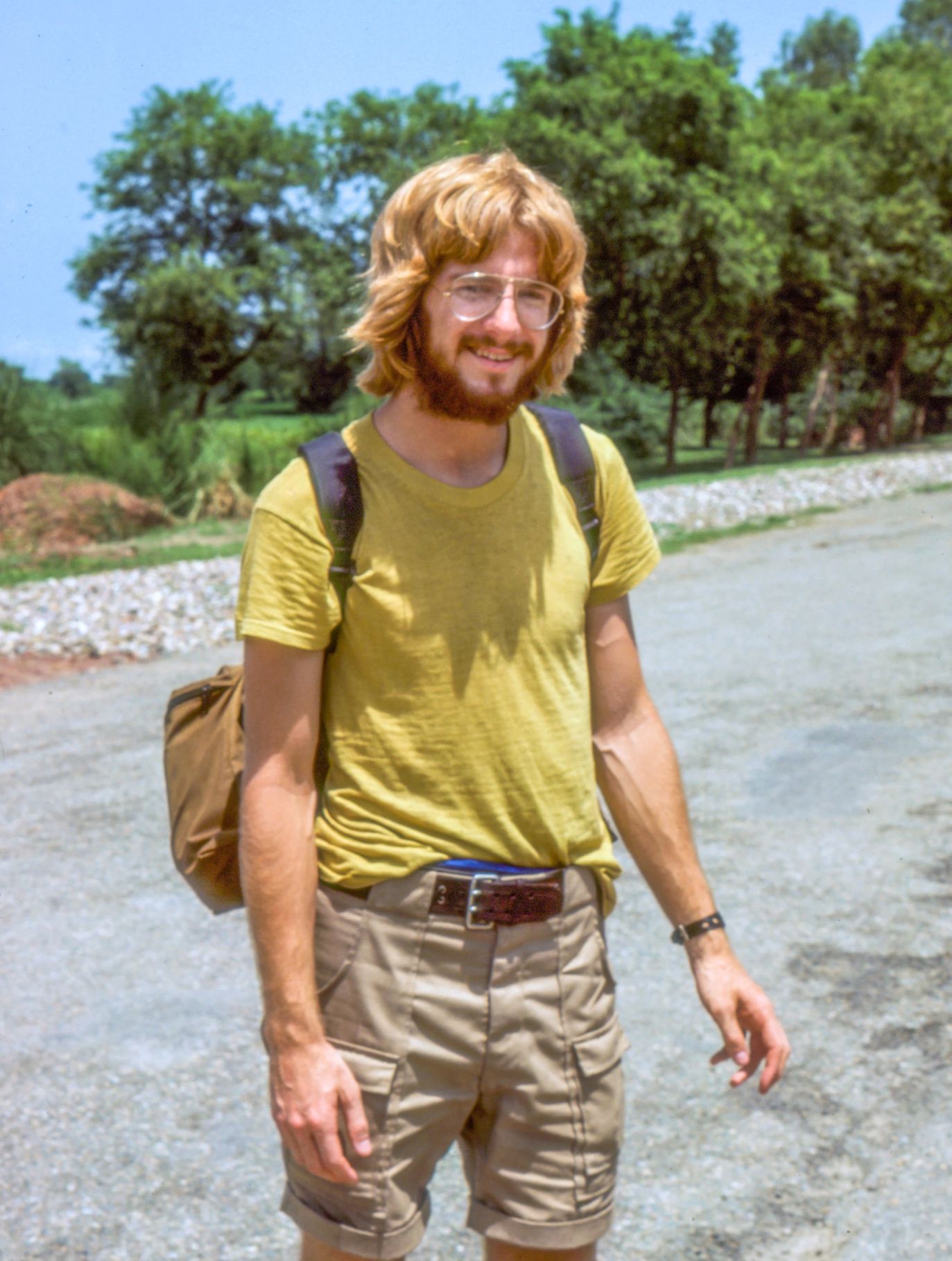AARP Hearing Center


Rick Steves, 69, is now a famous travel guru with an empire that includes loads of bestselling European guide books and a small-group tour company. But he wasn’t always so savvy: He was once a scruffy young man with a thirst for adventure, no money and no clue what he was doing when he set off in 1978 with a friend to complete the legendary Hippie Trail, a trek through Turkey, Iran, Afghanistan, Pakistan, India and Nepal. His new book, On the Hippie Trail: Istanbul to Kathmandu and the Making of a Travel Writer (Feb. 4), is his edited journal from that heady, rough trip — full of mishaps and excitement.
We talked to Steves about, among other things, his youthful journey and how he’s faring after his prostate cancer diagnosis last year.
This interview has been edited for length and clarity.


You had a pretty wild trip back in 1978. Now you’ve turned your journal from that adventure into a book, On the Hippie Trail. Why now?
Back then, when I was in my early 20s, I was a piano teacher, not a professional travel writer; I wanted to document the trip just for myself. Then, when I looked at it a few years ago, I thought, This could be a fun, historic, inspirational adventure tale for travelers.
What made that trip so special?
I was green, I was afraid, I was thrilled. I was out after dark. I was beyond the reach of my parents. I had no money. There was no good guidebook information back then. There was no safety net. It was truly an adventure, and it was endlessly entertaining. When you’re in Kabul or in Kathmandu — all you’ve got to do is walk, and it’s just a montage of memories and experiences and characters. Today, I don’t leave home without having my accommodations all reserved and everything very carefully organized. But back then we were just going behind the dark side of the moon.
How did the journey lead you toward a career in travel?
I just thought, This travel really has a value. I came home with a strong feeling that the world is filled with good people. It’s filled with joy, it’s filled with love, it’s filled with diversity that we should not be afraid of, but that we should embrace and celebrate. And you won’t know that unless you get out there and see it for yourself.






































































You Might Also Like
TV Food Star Alton Brown, 62: ‘There’s No Such Thing As a Natural Bad Cook’
The dynamic science-nerd chef chats about his new book ‘Food for Thought,’ what makes a good cook and eating weird things as a kid
Essay: My Dad Lives On, Through the Record Albums He Left Behind
Woman rediscovers dad by posting videos about his collection on Instagram
How I Relearned the Art of Doing Nothing
After a stressful career, a move to Italy motivated me to change my pace